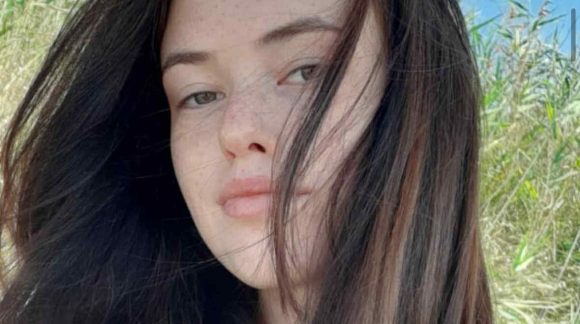Zaporizhzhia journalist, UNIAN correspondent Iryna Dubchenko had been detained in Rozivka, Zaporizhzhia region, after somebody reported her to russian occupants.
The journalist shared this with IMI representative in Zaporizhzhia region.
According to Iryna, she had been looking after her disabled mother, and then hiding a wounded Ukrainian soldier in her house. As a result, she had spent two weeks in captivity, knowing nothing about her future. She was rarely called for questioning, detained in a cell in Nikolske village, located in the occupied area of Donetsk region.
As the journalist told, Rozivka had been under Ukrainian control until March 3, and on that day the so-called “LDPR” troops entered the village.
“Before March 3, Ukrainian soldiers had been staying in our hospital for some time. We’d been helping them, cooking for them. On March 1 and 2, the military warehouses in Rozivka were blown up, and on March 3, the fighting began, lasting about a day. Everybody who’d been around the hospital moved out in Mariupol’s direction, and the occupants entered the village,” the journalist said.
According to her, on March 3 and 4, russian military vehicles were already moving through the village, and there was no electricity or mobile connection.
“It became clear that I wouldn’t be able to leave. Good thing that my daughter was with my mother at the time – she took the kid away right before the war, because she had the time to look after her. Grandma and I spent almost two weeks like this. And on March 12 I learned that a wounded Ukrainian soldier was hiding in the village,” she recalls, and adds that even thogh the occupants forced Rozivka village to vote “for” joining the “DPR” on a quasireferendum, a part of pro-Ukrainian residents is waiting to be liberated from the occupants every day.
Then the journalist decided to take the soldier in, since she had some wood to heat the house, as well as food and medicine. Sergey, the soldier, had bullet wounds in his shoulder and leg, broken toes and shards in his foot. “We were doing everything we could to help him in my house. In two weeks he could stand on his foot. In a couple of days he was to be taken away from Rozivka, but the russians would undress all men on the checkpoint to check for wounds. We found a way to mask the wounds, but it would take some time, and the occupants came sooner. Later I found out that I’d been snitched out,” Iryna said.
“It happened on March 26. I told them that he was my husband, but they shut my mouth, undressed him, saw the gunshot wounds and took him away. I was pleading to let him go, offered them all the gold i had, money, but they didn’t listen to me. I insisted that I wanted to see him. They agreed and told me to get in the car. I got in, in whatever clothes I had on, and that was it,” the journalist recalls.
Iryna Dubchenko was taken to Nikolske (Donetsk region), to the commandant’s office. There, she saw the soldier she’d been hiding for the last time. Then she was taken to the local police department and questioned. Namely, she was asked where the weapons were, who in the village opposes LDPR and if there were any guerrillas there. Then Iryna was taken to a cell where 16 men were already being held. After this, two more men were thrown into the cell, one of them wounded.
“That was it. I spent two weeks in a cellar. Sometimes the troops would entertain themselves: taking some of us out into the corridor and opening gunfire from above. They’d only call me “aidarivka,” told me that I’d been added to the database under the “particularly serious crimes” label, like “aiding terrorism.” They were planning to take me to Donetsk, and then to russia, where I would be put on trial and sentenced to 7 to 15 years in prison,” Iryna said.
According to the journalist, the troops didn’t know that she was a journalist, and she tried to never show it.
Iryna Dubchenko can’t say who or what became the reason for her abrupt release as a result. She promises to share this after Ukraine’s victory.
“They just called me out of the cell, saying, “Aidarivka, get out!” The officer asked how long I’d been there, took my fingerprints again. They returned my things to me, including the golden earrings, and told me I was free. Advised me not to get caught again, because I wouldn’t get such a chance the second time,” Iryna Dubchenko said.
Iryna could noly leave Nikolske to russia. “They took us to the checkpoint, then stopped a minibus which drove us to Novoazovsk, and then we traveled home in whatever way we could,” the journalist summarized.
We remind that russian occupants had detained Zaporizhzhia journalist Iryna Dubchenko on March 28. She was released on April 11.

